We can't find the internet
Attempting to reconnect
Something went wrong!
Hang in there while we get back on track
Phoenix Framework
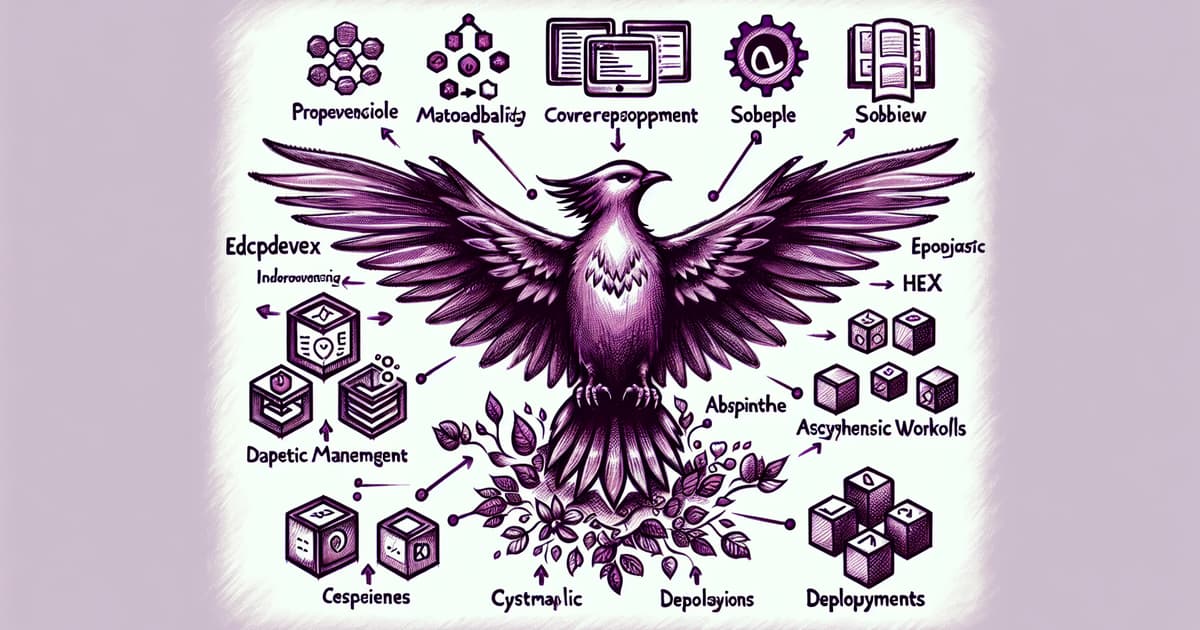
The Phoenix framework stands out in the Elixir ecosystem for its robust capabilities in web development, supported by comprehensive documentation and a supportive community. Developers have shared experiences working on commercial projects with Phoenix and LiveView, emphasizing the ease of integrating complex UI elements and ensuring real-time updates. Recent advancements include using Rust for performance improvements and introducing LiveView hooks for external libraries like SortableJS, enhancing UI customization. Furthermore, Phoenix's efficient handling of associations in Ecto simplifies relational management in applications. Concurrently, developers have noted the benefits of maintaining modular codebases and optimizing live updates, contributing to a streamlined development process.
A diverse set of tools such as Hex, Sobelow, and async workflows in LiveView attribute to Phoenix's extensive ecosystem. The introduction of libraries like Absinthe for GraphQL and components for handling upgrades and modifications highlights Phoenix's adaptability. Additionally, Phoenix's integration with tools like Fly.io leverages global distribution, facilitating scalable deployments. Real-time functionalities like LiveView Uploads further augment its dynamic capabilities, making Phoenix a versatile framework for modern web application development.

Kanta - A Translation Management Tool for Elixir & Phoenix Applications
Szymon Soppa from Curiosum announced a new open-source library named Kanta designed to ease the translation process in Elixir & Phoenix web applications. It integrates with gettext and features a user-friendly UI for managing translations.

Online Course for Developing MVPs Using Elixir
Peter Ullrich has announced his new video course titled 'Build an MVP with Elixir', aimed at teaching the essentials of developing a real-world application using the Elixir programming language.

Case Study on Approximated.app - A Web App Domain Automation Tool Built with Elixir
Carter shares the experience of building and running Approximated.app with Elixir, managing over 200k custom domains and its performance in production.

Discussion on Rethinking Serverless with Elixir using Flame Pattern
Josef Richter introduces a serverless pattern called FLAME, which stands for Fleeting Lambda Application for Modular Execution, in the context of Elixir applications.

Elixir Community Reflects on a Decade of Growth
Discussions reflect on ten successful years in the Elixir programming community, highlighting the influential role of Elixir in various projects and personal growth stories.

Exploring Phoenix LiveView through a Planning Poker App
Scorpil shares insights on building an interactive web application using Elixir's Phoenix LiveView.

Getting Started with Elixir on Kubernetes
Brewing Elixir introduces a series focused on running Elixir applications on Kubernetes, providing insights for Elixir developers to leverage Kubernetes functionalities for enhanced application availability, reliability, and robustness.

Implementing Machine Learning with Elixir on Fly.io GPUs
Jason Stiebs provides an overview of using GPUs on Fly.io for real-world machine learning applications with Elixir, focusing on the implementation of a semantic search for Elixir's HexDocs.
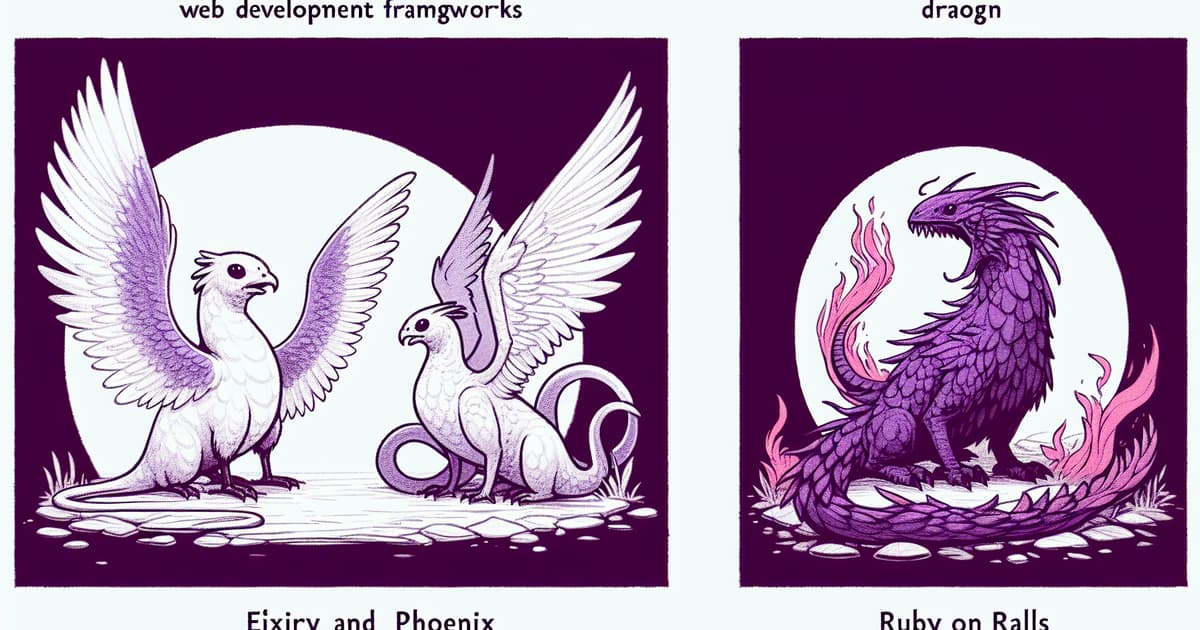
Comparing Web Development with Elixir/Phoenix and Ruby on Rails
In this episode, Owen Bickford and Dan Ivovich delve into the nuances of building web applications with Elixir and Phoenix compared to Ruby on Rails, discussing the pros and cons of each framework.

Introducing the FLAME Pattern for Serverless Architecture in Elixir
Chris McCord describes a new serverless pattern called FLAME which simplifies scaling and reduces complexity in Elixir applications.

Elixir's Practicality and Potential Beyond Web Development
Jason Stiebs touched on the practicality and power of Elixir, especially for web development and beyond. He recognized Elixir's leverage as an efficient, production-ready language with a solid ecosystem including Phoenix and observed a relative stability in his tech stack over years. He advocated for exploring Elixir's capabilities outside the traditional web domain, citing examples from machine learning to 3D modeling.

Implementing Advanced Multi-Tenant Features in Elixir with Ecto
Aestimo Kirina dives into building advanced multi-tenant features in an Elixir application, utilizing the Ecto library for efficient data handling and structuring.

Understanding the live_session Macro in Phoenix LiveView
Herminio Torres discusses the live_session macro in Phoenix LiveView for organizing authorization rules across different endpoints.

An Introduction to Getting Started with Nerves on Raspberry Pi
Michael Ries discussed several beginner-friendly projects utilizing Nerves and Elixir for embedded systems on Raspberry Pi, highlighting the accessibility of the framework for those new to hardware projects.

GridPoint's Use of Elixir and Nerves for Energy Management
Alex McLain talks about how GridPoint is leveraging Elixir and Nerves to build an advanced energy management platform. The presentation covers GridPoint's business operations, the balance between energy savings and customer comfort, and the various pieces of technology used to optimize energy management, including an overview of the Nerves platform.

Optimizing Map Performance with Elixir and Leaflet.js
Aziz Abdullaev discusses a practical approach to optimizing the performance of a map in a web application using Elixir, Phoenix LiveView, and Leaflet.js. The author details the issues encountered when attempting to render over 12,000 map markers and how they solved these challenges.

Optimizing Elixir Applications with Nebulex Caching
Erik Guzman explores using the Nebulex caching toolkit to optimize the performance of his Stream Closed Captioner application built using Phoenix in Elixir.

Integrating Rust with Elixir for Enhanced Performance
Jason Stiebs, a member of the Phoenix Core Team, discusses how Rust and Elixir can be effectively combined using the Elixir Rustler package to enhance performance, specifically through an image processing library in Rust. The conversation includes insights into the usage of NIFs (Native Implemented Functions) and the ease of using Rustler, providing a robust solution for high-performance requirements in Elixir applications.
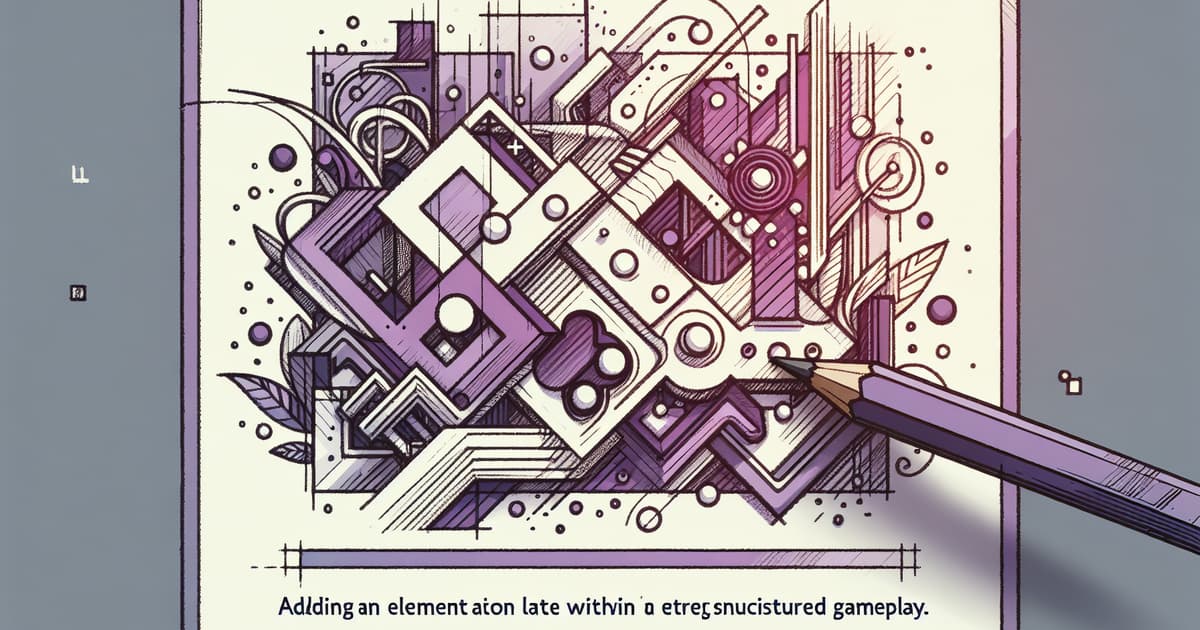
Integrating Dialyzer into Existing Elixir Projects
Noah Betzen discusses the challenges and strategies of adding Dialyzer to mature Elixir projects on Thinking Elixir Podcast.

Discussing the Evolution of Phoenix and Web Transports with Mat Trudel
In a recent Elixir Wizards podcast episode, Mat Trudel, a contributor to the Phoenix framework and the creator of the Bandit Web Server, shared his insights on the future of Phoenix, web transports, and specifically the implementation of HTTP/3. Mat also discussed web protocol evolution and his work on Bandit, which was inspired by a home AC project and designed to fill a gap in web server testing tools.

Managing Application Errors and Performance in Elixir with AppSignal
Thijs Cadier, Cofounder and CTO of AppSignal, discusses the tool's features and benefits for monitoring Ruby, Rails, Elixir, and Phoenix applications.

Discussing Elixir Code Security with Filipe Cabaco
Filipe Cabaco joins hosts Allen Wyma and Sascha Wolf on the Elixir Mix podcast to talk about prioritizing code security within the Elixir language ecosystem. He shares insights into his article on the topic and discusses tools that can safeguard Elixir code bases.

Discussing Elixir's Educational Path with Saša Jurić
Saša Jurić, the author of 'Elixir in Action', speaks about the progression and challenges in training and education for Elixir developers.

Discussion on Embedded Software Development Using Elixir
Amos King joins hosts Adi Iyengar and Allen Wyma to discuss his work with embedded systems using Elixir and the Nerves project.

Discussions on Phoenix and Its Future Developments
Phoenix core team members Chris McCord and Jason Stiebs discuss key updates and future prospects of the Phoenix and LiveView with Elixir Wizards hosts Sundi Myint and Owen Bickford.

In-depth Look at Full-Text and Name Search in Postgres
Peter Ullrich, Senior Elixir Engineer at Remote, joins hosts Allen Wyma and Sascha Wolf on the Elixir Mix podcast to discuss his blog articles on full-text and name search features in Postgres, explaining replacement of Elasticsearch, and the benefits of using these features for Elixir developers.

Discussing Ash Framework in Elixir Applications
Zach Daniel talks about Ash Framework on the Elixir Mix Podcast and its use in Elixir applications.

Understanding Deployment Strategies for Phoenix Applications
Herman Verschooten, an Elixir and Elm enthusiast, discusses his approach for deploying Phoenix apps using systemd and goes in-depth on the benefits and drawbacks of different deployment methodologies.

Building a League of Legends Probuild with Elixir
Baptiste Chaleil discusses his experience creating a Probuild for League of Legends using Elixir, Phoenix, and LiveView technologies.
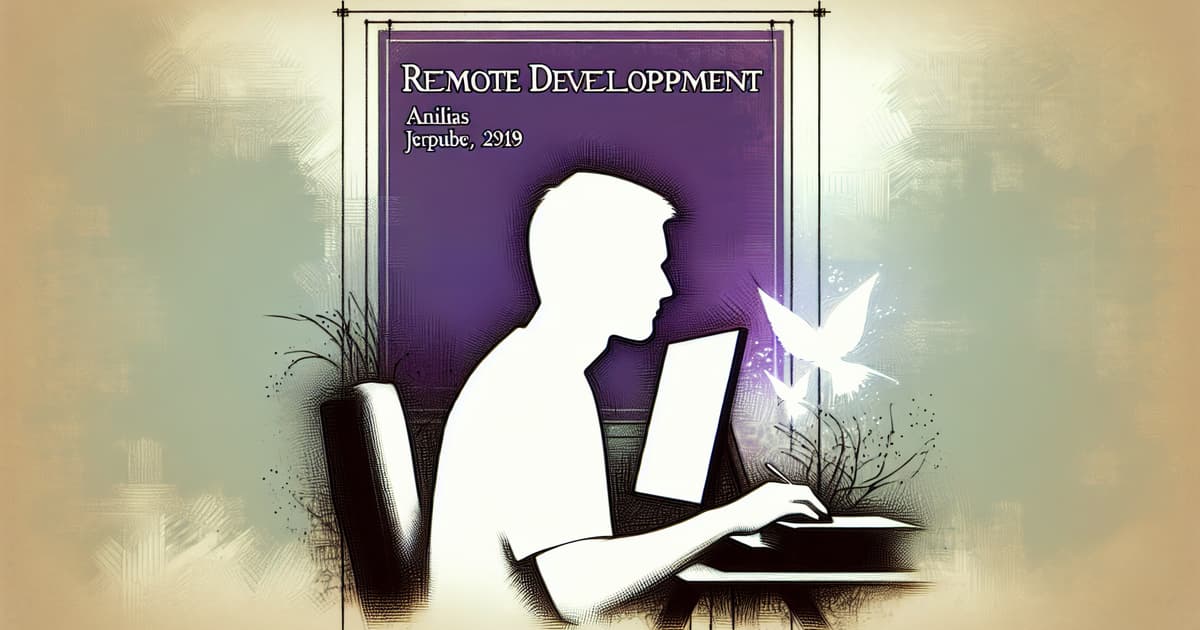
Exploring Remote Development in Elixir and Front-End Inspirations with Ben von Polheim
In episode 205 of Elixir Mix, Ben von Polheim, a freelance front-end developer, discusses the concept of remote development with Gitpod in the Elixir ecosystem, along with two Elixir libraries he built: live_motion and ex_cva.

Exploring Stenography for Coding in Elixir
In this episode, Paul Fioravanti discusses his experiences using stenography for programming in Elixir.

Ensuring Elixir Application Security with Michael Lubas
Michael Lubas discusses the importance of securing Elixir applications and his work with paraxial.io.
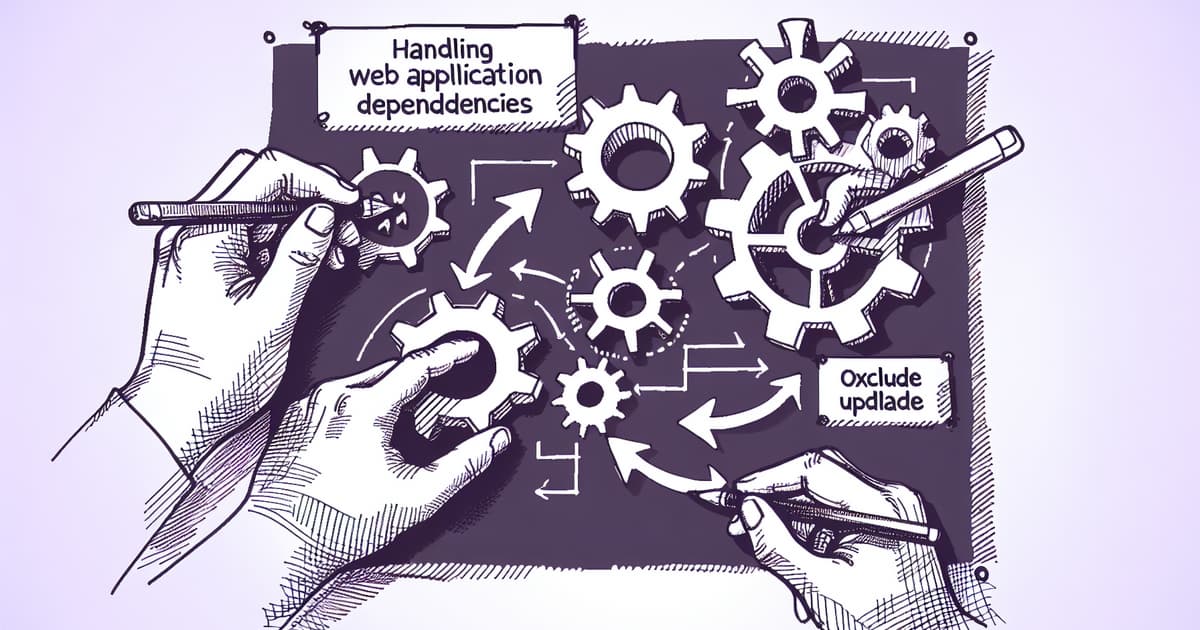
Discussion on Managing Dependencies in Elixir Web Applications
In this podcast episode, Allen Wyma and Sascha Wolf join as hosts to explore best practices for updating and managing dependencies in web applications. They share their experiences and strategies for ensuring smooth updates without introducing bugs.

Understanding Elixir Design Patterns with Sergey Chechaev
Sergey Chechaev discusses the application of design patterns in Elixir, sharing his perspectives as a software developer.

Discussion on Genetic Algorithms and Asset Portfolio Optimization with José Diogo Viana
José Diogo Viana discusses genetic algorithms to optimize an asset portfolio and shares insights into his company 'Finiam'.

Panel Discussion on Utilizing Elixir in Projects
Hosts Adi Iyengar, Allen Wyma, and Sascha Wolf share insights on their recent Elixir projects, challenges, and discoveries.

Discussion on Haystack Full-Text Search Engine in Elixir
Philip Brown, an Elixir software engineer, joins the Elixir Mix podcast to discuss Haystack—a full-text search engine created using Elixir.
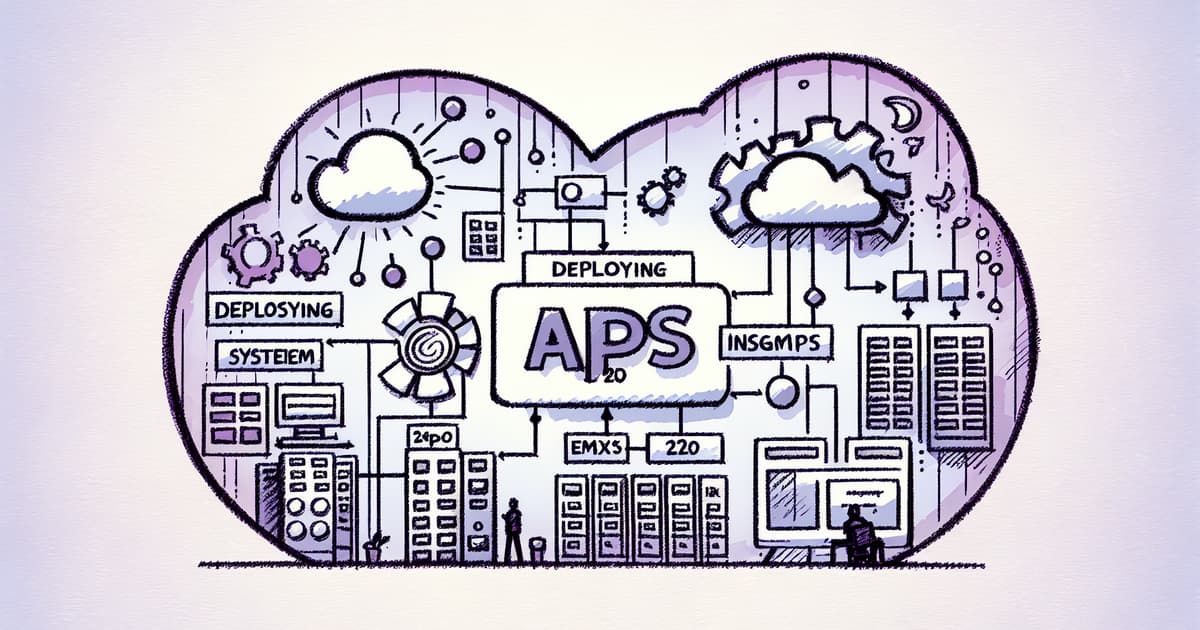
Deploying Elixir Applications with MRSK
Richard Taylor, the CTO at Dizzie, discusses his article on multi-cloud deployment for Elixir and Phoenix applications using MRSK.

Discussion on Scalable Elixir Application Structure
Adi Iyengar, Allen Wyma, and Sascha Wolf join this week's panelist episode to explore engineering approaches for startups and the ongoing debate of whether software engineering is really 'engineering'. They discuss building a large Elixir application with separate bounded contexts responsible for their supervision trees, highlighting the benefits and challenges of this approach and its balance between practicality and future-proofing. Topics ranged from microservices to new programming languages and patterns, offering insights valuable for developers at any level.

Elixir Developer Experiences and AI in Elixir
In this episode of 'Elixir Mix,' the panelists Adi Iyengar, Allen Wyma, and Sascha Wolf discuss their recent experiences and challenges while working on Elixir projects and the value of AI in the Elixir ecosystem.

Transitioning from Ruby to Elixir Discussion with Steve Bussey
Steve Bussey discusses language adoption and the transition from Ruby to Elixir on BeamRadio.

Reflecting on Chris McCord's LiveView Keynote with the BeamRadio Team
The BeamRadio team discusses Chris McCord's keynote on LiveView from ElixirConf 2022 and offers a discount code for CodeBeam tickets.

Insights on Observability in Elixir
The BeamRadio Panel delves into observability within the Elixir ecosystem in their 50th episode. Attend GigCityElixir and Empex NYC conferences to connect with the Elixir community.

How to Tailor Phoenix Generators for Specific Project Needs
Mark Ericksen discusses the lesser-known feature of customizing Phoenix generators to suit specific project patterns and styles, making the process of adding new components to an application smoother and less error-prone.

Improving Phoenix Email Templates with Components
Andrew discusses how to upgrade email templates in Phoenix projects by utilizing components and heex templates to create more maintainable and attractive emails.

Switching from React to LiveView for Performance Gains
Tim Gremore discusses the transition from a React Single Page Application (SPA) to Phoenix LiveView when developing Birdseye, a personal task management tool. Faced with performance issues that hindered scalability, the team embarked on a two-day exploration of LiveView. Convinced of its potential, they successfully adopted LiveView, which resolved the performance problems associated with handling a large number of tasks in React.

Understanding unique_index Use in Elixir for Business Logic
Herminio Torres explains how to efficiently use unique_index in Ecto schemas to enforce business logic constraints for ticket purchases in Elixir applications.

Simplifying BEAM Clustering for Global Distribution
Jason Stiebs explores the advantages of running Elixir and Phoenix applications globally with minimal setup using Fly.io's integrated WireGuard networking for Erlang distribution and clustering.

Performance Benchmarking of Distributed Elixir Nodes
Razvan Draghici discusses performance benchmarking in a distributed Erlang and Elixir environment, specifically targeting scenarios with over 200 nodes.

Creating a Multi-tenant Application with Phoenix and Elixir
Aestimo Kirina on Nov 21, 2023, discusses the steps to create a multi-tenant Elixir/Phoenix application with user authentication and link shortening functionality.
© HashMerge 2026